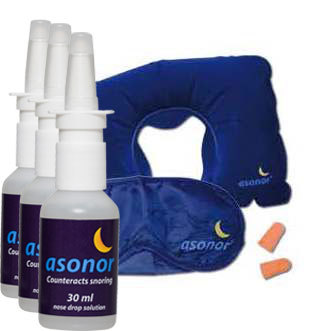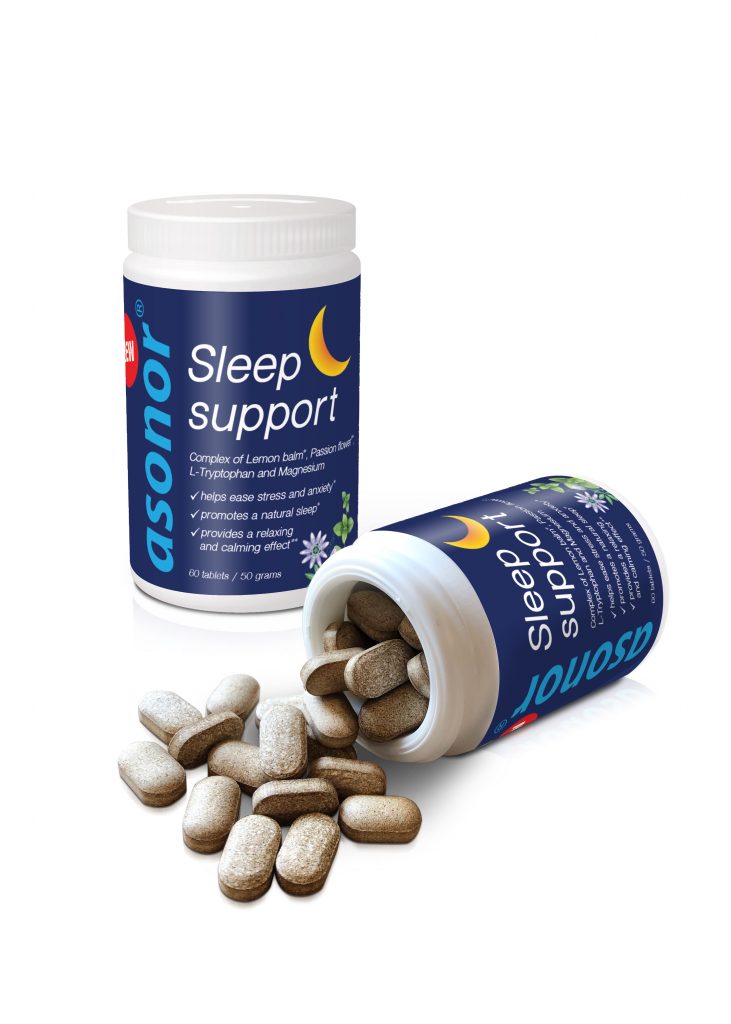Do you usually take a few drinks and sleep, hoping to sleep peacefully? That is a myth. Alcohol before going to bed doesn’t give you restful sleep, but tends to distort your sleep cycle and enhances your risk of snoring. When you snore heavily, the risk of developing sleep apnea is high.
As many individuals already know, sleep apnea is a disorder that repeatedly interrupts their breathing while they sleep. It can cause choking and gasping as well as frequent, loud snoring. Research has shown that OSA, or obstructive sleep apnea, affects some 39 million Americans while over 900 million individuals worldwide have mild to severe cases of this disorder. Furthermore, recent research has found that combining alcohol and sleep apnea may contribute to worsening the outcomes and symptoms for current sufferers of the condition.
Consumption of alcohol can worsen the symptoms of sleep apnea as alcohol tends to relax the muscles in the upper airways and throat considerably. That leads to the tongue falling back into the throat, worsening your snoring and leading to episodes of apnea and hypopnea. Thus, if you have sleep apnea and snore regularly, alcohol consumption can worsen your condition, by intensifying the pauses in breathing.
The Connection Between Alcohol and Sleep Apnea
If you suffer with sleep apnea, alcohol consumption can worsen your situation. That is because alcohol tends to relax the muscles of the throat and upper airways, increasing the chances of airway obstruction when you are asleep. Additionally, it tends to lower the brain’s response to fragmented breathing, thereby, prolonging apnea episodes.
Alcohol enhances the symptoms of sleep apnea, leading to unrested and fragmented sleep, prolonging the apnea episodes. It enhances sleep deprivation and fatigue. Those with OSA, suffer with heavy snoring and that increases the risk of cardiovascular diseases.
Why does alcohol make you snore?
If you drink alcohol, it relaxes the airway and throat muscles, causing it to narrow. When air passes through it, the loose tissues vibrate and causes snoring. Additionally, alcohol suppresses the brain’s activity and natural breathing reflexes. This increases the level and intensity of snoring, leading to poor oxygen levels and fragmented sleep.
This makes it harder to have a clear breathing passage while increasing congestion in many cases. That in turn restricts breathing and enhances snoring. Drinking alcohol near your bedtime can enhance the snoring as the sedative properties can disrupt regular sleep patterns.
Common Signs of OSA
If you think you may have obstructive sleep apnea, some of the more common signs of the disorder include having a dry mouth, headache, or sore throat when you wake up. It can also cause you to feel extremely sleepy or tired throughout the day or have difficulty concentrating or focusing on daily tasks. If these symptoms sound familiar, you should discuss them with your physician and have him or her refer you to a sleep specialist. They will conduct tests in a sleep laboratory and give a prognosis accordingly.
What do We know about Sleep Apnea?
So how will you know whether you have sleep apnea? Well, the fact is that sleep apnea is characterized by choking, gasping, or snorting sounds, there are 3 kinds of this disorder to be aware of:
- Obstructive sleep apnea or OSA– this is the most common form of the disorder. It occurs when soft tissues located at the back of your throat collapse and cause a blockage of your airway during sleep. As the airway closes or narrows, your breathing is interrupted and causes you to wake up.
- Central sleep apnea or CSA– this form of the disorder results when your brain fails to send the right signals to those muscles that control your breathing.
- Complex sleep apnea– more commonly referred to as treatment-emergent sleep apnea, this form of the disorder occurs when an OSA sufferer develops CSA from a CPAP treatment.
Interestingly enough, even those individuals who do not have OSA can experience sleep apnea symptoms after consuming alcohol. Studies have proven that moderate to heavy alcohol drinking can lead to OSA episodes in those individuals who don’t suffer with the condition. Furthermore, studies have shown that individuals who abuse alcohol have an elevated risk of developing OSA, especially if they are already snorers. Thus, next time you pick your beer mug or a glass of alcohol, think twice. It is detrimental to your health especially, if you are a snorer.
Can alcoholism cause sleep apnea?
Yes, it is possible that alcoholism may contribute to sleep apnea by worsening the condition. Alcohol leads to relaxation of the upper chest area, notably the breathing airways and throat. That leads to the collapse or narrowing of the airways when you are asleep. This is the first sign of Obstructive Sleep Apnea.
It has been seen that regular alcohol consumption suppresses the respiratory control of the brain and disrupts the Circadian rhythms, exacerbating the hypopnea and apneic episodes. Additionally, alcoholism can lead to weight gain which in turn increases snoring and risk of sleep apnea. Chronic alcohol consumption can lead to disruption of oxygen flow and restful sleep.
How does Alcohol Consumption worsen OSA?
Is there a connection between drinking alcohol and sleep apnea? Clinical research studies contend that there is. When an individual with OSA consumes alcohol, it elevates the risk of experiencing more and longer lasting disruptions in their breathing. Alcohol consumption has also been linked to reduced blood oxygen levels in OSA sufferers as well. Here are 6 reasons why alcohol may worsen OSA symptoms:
- Amount of alcohol consumed – The larger the amount of alcohol consumed, the more elevated its effect on OSA. Numerous studies have shown that 2 or 3 standard drinks can have negative effects on a person’s OSA.
- Consuming alcohol prior to bedtime – Drinking alcohol late at night or just before going to bed raises your blood-alcohol level and increases the effect of OSA during sleep. In turn, the impact on your breathing may be elevated in the first half of your sleep cycle as your body metabolizes the alcohol.
- Higher arousal threshold – A lowered oxygen level and restricted breathing can cause a person to partially wake up and enable their breathing to be restored. Alcohol raises a person’s arousal threshold, thereby making it more difficult for them to wake up. The results are longer breathing disruptions. This leaves your body oxygen deprived and leads to sleep deprivation, fatigue and daytime drowsiness.
- Increased nasal congestion – The consumption of alcohol induces changes in nasal blood vessels. This contributes to congestion and makes it more difficult for you to breathe through your nose. Nasal congestion increases pressure on the upper airway and therefore intensifies breathing disruptions in OSA sufferers.
- Relaxation of airway muscles and tissues – Consuming alcohol causes mouth and throat muscles to relax, thereby causing a loss of muscle tone which makes it much more likely for tissues to obstruct the upper airway. Our nasal drops can help tighten the loose throat tissue and reduce the intensity of snoring.
- Your age – The older the individual, the more susceptible they are to the effects of alcohol. So, those individuals with OSA may worsen the condition if they consume alcohol prior to going to bed.
In addition to worsening a person’s symptoms, consuming alcohol can compound the health risks commonly associated with OSA. For example, individuals who have OSA have an elevated risk of drowsy driving and getting into an accident. Finally, by adding to lowered oxygen levels, drinking alcohol may increase cardiovascular problems that are commonly associated with OSA cases that go untreated.
So the key takeaways are as follows. Alcohol hampers or impedes your central nervous system and inhibits your brain’s response to breathing while you sleep. Furthermore, it is a relaxant that can compound airway obstruction when you have sleep apnea. For one of the best snoring solutions in the market today, try Asonor anti snoring sprays solution, a product that has been proven effective in 75% of the cases studied.
For more information about ways to stop snoring, it is good to browse through our website or call on our company representatives that are waiting to take your calls. Call now!
How to Stop Snoring After Drinking Alcohol?
Here are some tips to use if you want to stop snoring after drinking alcohol:
- Staying hydrated:Drinking alcohol can lead to dehydration and leads to throat and nose becoming dry. Thus, drink water and stay hydrated.
- Elevate head and side sleep:Use pillows to elevate your head to stop snoring and breathe better. By side-sleeping, your airways stay open.
- Avoid alcohol and sedatives: Alcohol and sedatives relax muscles leading to obstruction and causes snoring.
How Alcohol Can Affect Sleep Apnea?
Sleep apnea is worsened when you consume alcohol as it acts as a relaxant for the throat muscles. That enhances the airway obstruction when you are asleep. Thus, the sleep apnea episodes increase so you have severe breathing interruptions, causing poor blood oxygen levels. Additionally, alcohol impairs brain activity slowing responses to disruptive breathing episodes. That worsens the sleep apnea condition. Thus, it is advised to limit alcohol consumption to stop snoring and reduce apneic and hypopnea episodes.
Tips for People With Sleep Apnea
You might be looking for tips for people with sleep apnea, as they need to avoid the ill-effects of alcohol on the breathing when asleep. Thus, you need to avoid alcohol consumption in the evening, close to your bedtime. Additionally, drink alcohol in moderation so that your sleep cycle is not disrupted. If you are under treatment for OSA, ensure that you are consistent and use the CPAP machine properly so that there are lower breathing disturbances and health complications. Talk with your doctor for more information.
Conclusion
In conclusion, alcohol may contribute to snoring and fragmented sleep, diminishing overall sleep quality. Thus, people with sleep apnea need to limit their alcohol intake so that there are no breathing disruptions, and snoring when you are asleep. Sleep deprivation and low blood oxygen levels puts your health at risk and that is why sleeping well is important.






